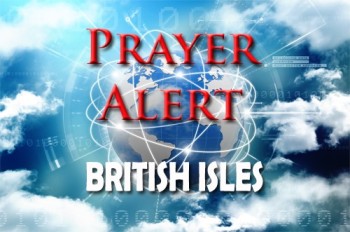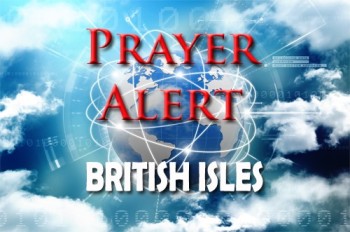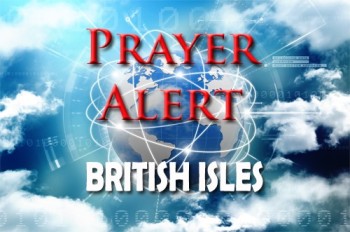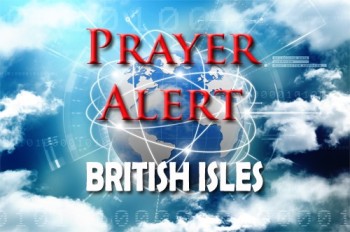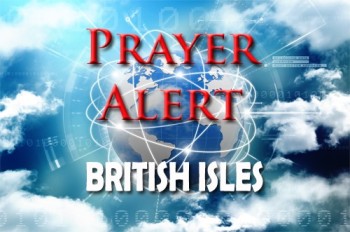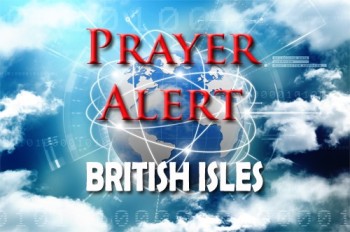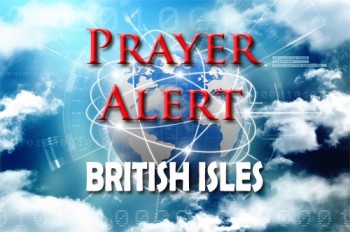Displaying items by tag: asylum seekers
France accused of encouraging people-smuggling
Fresh controversy has erupted after video footage emerged showing French border officers handing life jackets to migrants mid-Channel, fuelling claims that France is aiding illegal crossings rather than preventing them. The footage, captured by migrants, shows a French patrol vessel approaching a small migrant boat and supplying safety vests. Critics, including Shadow Home Secretary Chris Philp and former Border Force chief Tony Smith, argue this action undermines UK-funded efforts to stop smuggling and sends the wrong message to those attempting the journey. Smith insists that if the French can approach boats at sea, they should redirect them back to French shores. With over 11,500 crossings recorded by early May (up 35% from last year), the Government faces mounting pressure to resolve the crisis. Officials stress that life jackets are distributed based on safety assessments, but the video has triggered strong political backlash. The Home Office reaffirmed its goal to dismantle smuggling networks exploiting vulnerable people for profit, as calls grow for firmer preventative measures.
Asylum applications: EU issues list of ‘safe’ countries
The EU has proposed a new list of seven ‘safe countries of origin’ - Kosovo, Bangladesh, Colombia, Egypt, India, Morocco, and Tunisia - to fast-track asylum applications from citizens of those nations. The assumption is that most of these claims will be denied, allowing decisions within three months. The move is part of ongoing efforts to reform the EU’s asylum process, following the 2015–2016 migrant crisis and persistent low return rates (only 20% of rejected applicants are deported). The plan allows countries to process claims faster if fewer than one in five applicants from a specific country are granted protection. Countries applying for EU membership will also be presumed safe unless affected by war. Italy’s right-wing government welcomed the list, but human rights groups raised concerns, warning that these countries have documented abuses and lack full protections. The EU said that individual case reviews will still be required, despite the fast-track designation. The proposal awaits approval from both the European Parliament and member states.
Italy: controversial outsourcing to Albania delayed
Government-aligned Italian MEPs are defending a plan to detain migrant arrivals in Albania, despite NGOs calling it ‘cruel’. Two Italian-funded migrant reception centres in Albania, part of a five-year agreement, face delays and are now unlikely to open before the end of the year. Under this deal, Albania will host up to 36,000 asylum seekers a year while Italian authorities handle their cases. The upfront costs are arguably minor compared to managing migration in Italy, but critics, including Amnesty International, argue that the plan violates human rights by detaining migrants for long periods and externalising asylum procedures. The externalisation model, also seen in the now-discarded UK government’s Rwanda plan, is seen as effective by some EU states but raises concerns about human rights and costs.
Migrants ‘unjustly maligned’: church leaders speak out as Rwanda bill passed
The Archbishops of Canterbury and York, along with other church leaders, have voiced strong concerns regarding the recently passed Safety of Rwanda Bill. This legislation, aimed at deporting some asylum seekers to Rwanda, has met with considerable opposition. The church leaders criticised the bill for unfairly maligning migrants fleeing war, persecution, and violence for political purposes. In a joint statement, they highlighted the potential precedent this bill sets for the treatment of vulnerable individuals, including victims of modern slavery. They expressed disappointment in the rising hostility towards refugees and asylum seekers, whom they describe as being used as 'political footballs.' The UN has also urged the UK to reconsider this bill, especially after the tragic deaths on 23 April of five people attempting to cross the English Channel. Rishi Sunak defended the bill, citing the need for a deterrent against criminal exploitation of vulnerable migrants. See
Rwanda bill: Government suffers fresh defeats in Lords
The Government's Rwanda bill faced fresh setbacks in the House of Lords, with Labour-backed amendments passing despite previous reversals in the Commons. These amendments include exceptions for children and adherence to international law. Rishi Sunak has faced ongoing resistance since the proposal was announced in April 2022. While the government's majority suggests amendments may be overturned, the margin of defeat narrowed as additional peers were enlisted. The bill must reconcile differences between the Commons and Lords before becoming law, a process known as parliamentary ping-pong. Some peers emphasised the importance of international and domestic laws, including human rights and modern slavery legislation, in their amendments. They also supported measures requiring independent verification of Rwanda's safety and exemptions for individuals who had assisted the UK military or government abroad. Sunak has vowed to curb illegal immigration, emphasising the bill's role in this effort.
Colombia / Panama: failure to protect migrants criticised
Human Rights Watch (HRW) has criticised Colombia and Panama for failing to protect migrants and asylum seekers crossing the perilous Darien Gap jungle route between the two countries. The report highlighted inadequate protection and investigation of abuses, including sexual violence. The Darien Gap, fraught with natural hazards and criminal activity, is a favoured route for those fleeing violence and hardships; over 520,000 people used it in 2023. HRW urged Colombia to investigate a criminal gang's exploitation of migrants and allocate more resources for protection, and criticised Panama’s ‘controlled flow’ strategy, which it said needed to be modified. It also called for the appointment of a senior official to coordinate responses with the UN and humanitarian groups.
Asylum-seekers to be paid to move to Rwanda?
The Government is considering a proposal to offer up to £3,000 to failed asylum-seekers to relocate voluntarily to Rwanda. This plan, aimed at reducing the backlog of asylum applications, is separate from the controversial 'Rwanda bill,' which seeks to deport most asylum-seekers to Rwanda. The new scheme builds on existing policies offering financial assistance for voluntary returns to home countries. In the past year, 19,000 people have voluntarily left the UK under such schemes. The new proposal allows recipients of the financial package to live in Rwanda, a country the Government deems safe despite concerns about political oppression. Under this plan rejected asylum-seekers who currently cannot work legally in the UK would be allowed to work in Rwanda and receive five years of additional support. The government’s Rwanda bill has already been ruled unlawful by the Supreme Court for violating human rights laws. Rishi Sunak is now pushing legislation to designate Rwanda as a safe country for asylum-seekers, hoping to circumvent legal opposition.
Calls for more scrutiny on religious conversion by asylum-seekers
The Home Secretary is reviewing whether tighter scrutiny is needed for asylum seekers claiming conversion to Christianity. This follows the case of Abdul Ezedi, a 35-year-old Afghan asylum seeker and convicted sex offender, who converted to Christianity and is suspected of a chemical attack in South London. James Cleverly will receive a detailed report on Ezedi, highlighting concerns about the authenticity of conversions among refugees. Tim Loughton MP emphasised the need for rigorous examination of such claims to assess the risk of returning these individuals to their home countries. Former home secretary Suella Braverman accused the Church of enabling widespread false asylum claims. David Rees, a church elder, said that forty asylum seekers on the Bibby Stockholm barge are Christian converts; some had converted before they had arrived in the UK. He outlined the church's process for verifying conversions, including public testimonies in the converts' native languages. The Home Office stated it has procedures to prevent fraudulent asylum claims based on religious beliefs.
Rishi Sunak sees off rebels as MPs back Rwanda bill
Rishi Sunak's Rwanda bill, aimed at preventing legal challenges to the UK's plan to send asylum seekers to Rwanda, has passed the House of Commons with 320 votes in favour and 276 against. Despite initial concerns from some Conservative MPs, only 11 voted against the bill. The legislation now faces opposition in the House of Lords. Sunak's government argues that this policy will deter migrants from illegally crossing the Channel into the UK. However, Labour criticises it as an ineffective and costly 'gimmick’. The plan has sparked divisions within the Conservative Party, with MPs like Robert Jenrick proposing amendments to bypass parts of human rights law, which were ultimately not adopted. Home secretary James Cleverly defended the bill as a clear message against illegal entry into the UK. The bill's passage in the Commons is a temporary victory for Sunak, but more challenges await in the House of Lords.
'Crazily stupid' gangs ship migrants across freezing Channel
Amid freezing temperatures, criminal gangs have been condemned for their reckless actions in transporting around 200 migrants across the English Channel in dangerously cold conditions. The gangs have been criticised for their complete disregard for the safety of the migrants, using flimsy boats in treacherous weather, risking fatal outcomes. This risky crossing follows the recent tragic loss of five lives. The GB News' security editor highlighted how these gangs reduce the number of people per boat in bad weather, emphasising the perilous nature of these journeys. An investigation into 'aggravated manslaughter' has been launched following the recent capsising incident, underscoring the life-threatening risks involved. The Prime Minister's Rwanda bill, aimed at addressing this crisis, was passed by the House of Commons despite strong opposition and concerns over its compatibility with international law.
